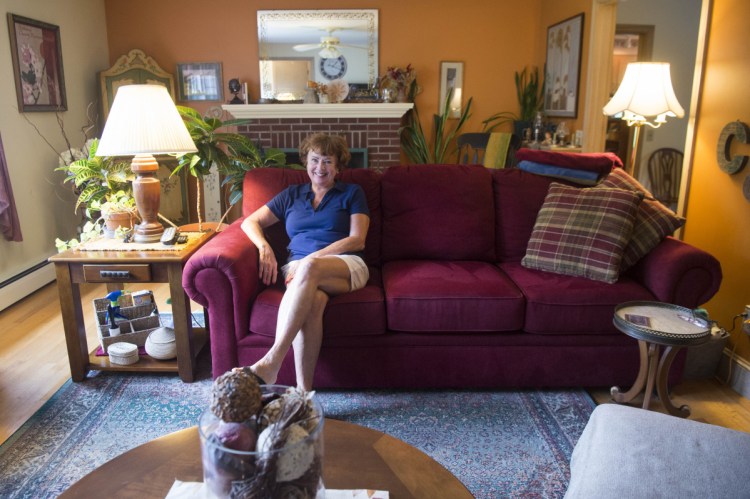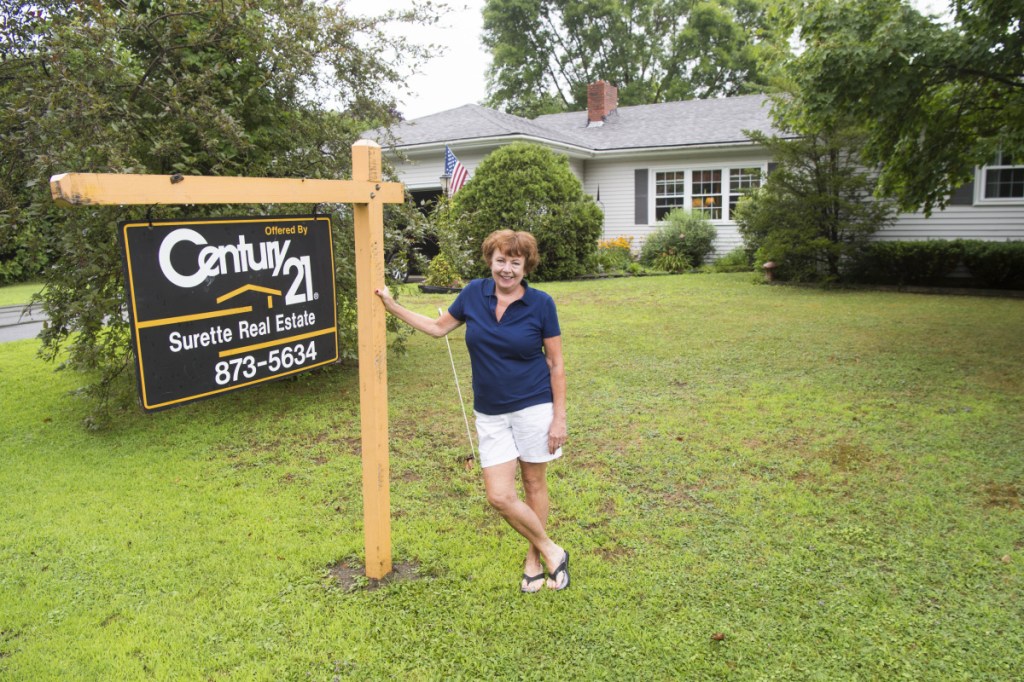WATERVILLE — When Cathy Taylor decided to put her Merrill Street home up for sale this spring, she was encouraged by real estate agents telling her the market was looking good.
“The Realtor said we’ll have five offers in a week,” Taylor said. “That didn’t exactly happen, but I still don’t think two months is too long.”
After close to 15 years in the house, the death of her former husband and a new marriage, Taylor said she is ready to downsize and move someplace where she doesn’t have to worry about plowing or mowing the lawn, though she wants to stay in the city.
Across Waterville, other residents are also tapping into what some say is the best housing market the city has seen in years. Since 2008, the number of homes bought and sold each year has more than doubled, though the average cost of a home has stayed about the same.
Only 80 residential properties, including duplexes and some apartments, were bought and sold in Waterville in 2008, according to city records. In 2017, that number was 247.
At the same time, the average cost of a home in 2008 was $115,289. In 2017, the average cost of residential properties sold in the city rose to $192,000, though that number was skewed by the $20 million sale of the Hathaway Creative Center, which included the sale of a home at 4 Oxford Street.
The current average home price for those sold so far in 2018 is $112,183.
City Assessor Paul Castonguay said the reason for the increase in sales is simple — the area, like others across the country, is recovering from the Great Recession of 2008 and seeing home sales rebound.
“Nothing was selling in 2008,” Castonguay said. “It was pure economic timing for the whole country.”
But even before the recession, home sales in Waterville were not nearly what they are now. In 2006, 116 residential properties were bought and sold. In 2007, there were just 89 transactions.
Don Plourde, a longtime real estate agent at Coldwell Banker Plourde Real Estate, said there’s more to the increase than just the recovery from the recession. He said recent investments in Waterville’s downtown have contributed to a hot real estate market the last few years.
Since 2015, Colby College has partnered with private investors to purchase and renovate a number of downtown buildings and work on a revitalization plan that includes the construction of a mixed-use residential complex for students, new restaurants and a hotel and an arts and film center on Main Street.
“In 30 years I’ve never seen the excitement in the area that I’m seeing now,” Plourde said. “I think what’s going on has been energizing for the whole area.”
At the same time, Plourde said he has heard from some homeowners who have wanted to sell their homes because of the city’s high property tax rate. Waterville’s tax rate recently went up 8 percent — to $25.27 per $1,000 of assessed value. Portland, in southern Maine, has a tax rate of $22.48.
The neighboring town of Winslow has a tax rate of $16.74.
“I think some of the outlying areas, like Sidney and Vassalboro tend to be more active because the taxes are lower and that is attractive to people, especially those who are looking for more expensive homes,” Plourde said.
The fact the city also has an aging housing stock — according to the U.S. Census Bureau almost half of Waterville’s housing stock was built before 1950 — has also been a challenge.
“We’re looking at a large portion of the city’s housing stock being extremely old,” said Garvan Donegan, director of planning and economic development for the Central Maine Growth Council. “There’s a great opportunity there for fixer-uppers. I think some of the data points about increases in home sales speaks to that. Another reason (for increased sales) is some of the investments by the private sector have shed a light on residential investment opportunities.”
Donegan said he foresees a need for more and varied types of housing, especially condos and mixed use housing, to increase the residential density downtown and attract a younger workforce.

Cathy Taylor shows her home which is up for sale on Merrill Street in Waterville on Saturday. Waterville housing market has been in an up swing. Only 80 residential properties, including duplexes and some apartments, were bought and sold in Waterville in 2008, according to city records. In 2017, that number was 247.
Since 2010, the city’s population has increased 5.6 percent, from 15,723 in 2010 to 16,600 in 2017, according to the census bureau. Donegan said he expects that growth to continue with more investments in both residential and commercial properties.
“I think the investments in Waterville are something other communities are looking at,” Donegan said. “At just under 14 square miles, we do need to be mindful of what we can squeeze out of our tax base, but at the same time, when I have an opportunity to work with a business, their first questions are usually about human capital — where is the work force, how will we retain people, what programs are there to keep folks and talent in place.”
Courtney Blood, an agent at Century 21 Surette Real Estate, said while taxes are a concern for homeowners everywhere, they haven’t been a driving force for people to sell in Waterville, though that argument was made during the city’s most recent budget discussions.
“I think a lot of it has to do with the recession,” Blood said. “We’re seeing similar conditions as to what happened with the marketplace in 2005 or 2006, where things were shooting up quickly. It seems to be a little steadier situation. There’s just more demand and more people are working.”
When it comes to the cost of homes, Plourde said it has remained relatively unchanged because for years following the recession there was excessive inventory. Now as demand for homes begins to increases, he said he expects prices to follow.
“We haven’t seen prices go up because there’s no shortage,” he said. “When there’s a shortage of homes, we’ll see prices increase and I think we will see that soon.”
Rachel Ohm — 612-2368
Twitter: @rachel_ohm
Send questions/comments to the editors.





Comments are no longer available on this story